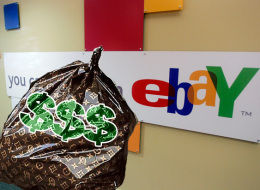Luxury Brands
The "Dream Formula"
dinsdag 7 december 2010
China becomes wealthier, luxury brands boom
While luxury carmakers are putting more resources in the Chinese market, they have to take one thing into account: the unique psychology of Chinese people. Their pragmatism is one of the characteristics they have to deal with. Luxury car manufacturers use several marketing strategies to excite the Chinese buyers.
To make luxury cars more affordable for the Chinese population, they introduced entry-level luxury models and they offer cheap credit options. To lower the price even further, Mercedes launched the environment-friendly 1.6-liter C-Class, which qualifies for a sales tax cut and a subsidy, allowing young people to buy their dream car too.
Nick Z.
Source: People's Daily Online
Are luxury brands sustainable?
Luxury brands had a hard time facing the credit crunch, they had to lower their prices, but not too low, in order to keep their credibility and stay exclusive. Many people have lost a lot of money, and so they were forced to buy inferior or sumptuous goods instead of their usual luxurious products.
The managers of the luxury brands had to work out a new brand strategy. It's important that the strategy is flexible enough to easily adept with changes in economy but also be strong enough to compete with the risks that these brands have. Brand management is clearly an important subject of healty luxury brand. The managers should be aware of the value of their products, so they can have better customer relations. They also have to understand the changes in customer psychology and their shopping habits, in order to create a good marketing strategy.
Jana Vastenavondt
http://ezinearticles.com/?luxury-Brands-and-Their-Sustainability&id=5150002
maandag 6 december 2010
Which luxury brand do you prefer?

Luxury Brands = Luxury Shares?
- LVMW (€ 120)
The LVMH group holds over 50 luxury brands. Henk Potts (equity analyst for Barclays Wealth) sees LVMH as a core holding in its sector, due to its high quality brands, strong management team, and significant earnings growth potential in addition to its recent acquisition of a stake in Hermès.
Rating: buy 23, hold 10, sell 2.
- BMW (€ 59)
In 2009, Bayerische Motoren Werke (BMW) has sold almost as much units as in 2007 (before the financial crisis) and their global sales increased by 13% in the first half of 2010. It seems like the worst recession is behind for luxury car makers. According to Mr. Potts, the roll-out of the new series five has put BMW in a strong position.
Rating: buy 28, hold 12, sell 4.
- Polo Ralph Lauren ($ 110)
In July, these shares have hit a low, but since then they have recovered by 40% due to increased global demand. Forbes blogger Zacks states they are "on sale" and recommends investors to buy them now.
Rating: buy 5, hold 8, sell 0.
- Burberry: buy 3, hold 19, sell 3.
- Mulberry: buy 2, hold 0, sell 0.
- Richemont: buy 13, hold 14, sell 3.
- Rolls-Royce: buy 10, hold 9, sell 7.
- Tiffany's: buy 10, hold 9, sell 2.
- Diageo: buy 20, hold 12, sell 3.
- Inchcape: buy 7, hold 4, sell 3.
Nick Z.
zondag 5 december 2010
Lol, humor and luxury!
Although humor and luxury seems incompatible, exclusive brands start combining them in order to reach Generation Y.

Imagine a prestigious serious man watching a commercial of Hermés featuring a fingerboard making tricks on some clothing products. Odd? Yes, but also childish funny.
Generation Y are known as people born around the mid-1980's and later. This means that nowadays they work and buy goods. This generation, also called the Millennials, is known for their tech-savvy nature and is less formal oriented.
Marketing managers of luxury brands believes that Millennials are more open minded and might be attracted to humorous advertisements. The Gen-Y luxury consumers might appreciate the childish humor and could be seduced to buy the featured product. Another strong point is, that in this way they can communicate to people who are not interested in the traditionally focus on respect, formality and prestige of luxury brands. They also show the brands’ product portfolio.
Though this innovative form of advertising seems promising, humor remains something personal. Not all luxury consumers are pleased with hilarious commercials. Most of the marketing managers are aware of this and are not fond of this new trend.
Andreas Verleysen
http://luxurysociety.com/articles/2010/11/humour-the-next-trend-in-digital-luxury-marketing
http://www.youtube.com/watch?v=wKVeSMDewnA&feature=player_embedded#!
Luxury brands on social networks

zaterdag 4 december 2010
eBay not liable for counterfeit luxury products
The first trial dates from 2004, when a federal judge and later also a U.S. appeals court ruled that eBay cannot be held liable for trademark infringement, following the argumentation above. The court also acknowledged that eBay takes sufficient efforts to reduce the amount of counterfeit goods sold on their websites to a minimum.
Tiffany was not pleased with this ruling, and appealed to the Supreme Court. They said eBay has made a profit of $4.1 million from sales of counterfeit Tiffany jewelry between April 2000 en June 2004. eBay asked to reject this appeal, arguing that trademark laws for internet commerce are not to be changed by the courts, but by lawmakers in Congress. They also noticed that they already spend as much as $20 million per year on anti-fraud measures. On Monday, November 29, 2010, the Supreme Court rejected Tiffany's appeal without further comment.
Nick Z.
Source: Reuters


